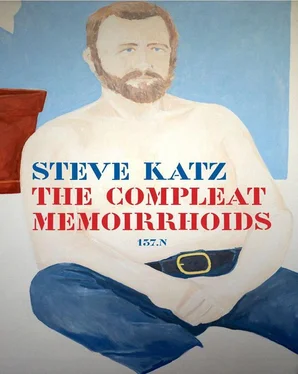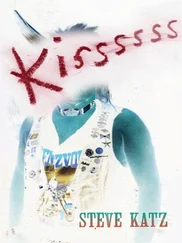“I have an India Airlines connection for Delhi,” I said. “Is there a problem with the four o’clock?”
“No.”
“Will I be able to make it?”
“No. Maybe.”
“What do you mean? Has the flight been cancelled?”
“No.”
It was hot. I was sweating. “What can I do?”
“You can please to get in line and to wait for the computers to come back.” Her head swayed from side to side in that characteristically Indian bobble.
I turned to assess the line. People looked as if they had been there for months. Couples slouched against each other. Children whined feebly. Backpackers slept on the floor.
“Will they be back on line before my flight?”
“No. Perhaps maybe, perhaps no.”
I went to the back of the line. The three hours I had to make my connection now seemed not nearly enough. I would never get to meet up with my friends. Nothing was moving. Three hours? Three weeks didn’t seem enough. Nobody was ever going to do anything. The whole technology was aswim in the oceanic environment of resistance that is Mumbai. I was trapped in this broad subcontinent of despair. Then as if I was in some story out of the Upanishads, the miracle happened. A lean, eager man, small as a young boy, dressed in what looked like a cross between traditional garb and baggage handler’s gear, approached me and removed his toque.
“You are Mr. Katz, please?”
I could hardly muster my yes.
“You are going to Delhi, yes?”
“Yes. New Delhi.”
“Follow me then, Mister Katz.”
“What? Why?”
“You go to Delhi, follow me. Hurry up, please.”
Who was this Gunga Din, tugging on my sleeve? How did he know my name? And how did he find me? The line had grown behind me. I would lose my place if I followed him. It would have to be a leap of faith. How did he pick me out, from all the other people in line? “Follow me. Hurry up, please.”
Hurry up sounded so unlike an Indian MO. I grabbed my bags and followed Gunga Din. We passed a row of payphones. I suddenly wanted to talk to someone, perhaps to my former student, to get a reality check. “Do I have time to make a call?”
“A call?” He looked at his wrist that had no watch on it. “Yes. Yes. Time. But make it quickly.” He looked at his wrist again. I went to the phones. One of them took credit cards. I inserted my Visa but got no dial tone. None of the phones, as far as I could see, had wires attached.
“Do these phones work?” I asked my man.
“No. Of course not. Not in Mumbai. No. We must hurry now.”
I felt like I had come all the way through the looking glass. He took one of my bags and we hurried on. We passed several gates, and finally stopped. “This one to Delhi.” He put my bag down and waited for his tip. I had no rupees yet so I gave him a twenty-dollar bill. He clicked his heels together, wobbled his head, thanked me, and left without explanation. I showed my ticket to the heavy-set blonde hostess at the gate. This was an Aeroflot to Delhi and Moscow. I didn’t have a reservation on the Russian airline. I still have no idea how my Gunga Din found me, nor how I was allowed on the plane without more ticket processing and a boarding pass. The plane was a flying crate held together with duct tape, the seats loosely fastened, some without upholstery, uneven rows, fixed at angles. If this plane crashes, I thought, they wouldn’t lose much. The hostesses were friendly but they were rude, probably trained when Russia was a People’s Republic, and service was a bourgeois concept. I didn’t want to look into the raucous cockpit to see how drunk the pilots were. Vodka, Da! Thankfully it was a short rattling flight, but it got me to New Delhi in time to meet my friends. I’ll never understand how all this happened, but I did come to understand something about Suketu Mehta’s Maximum City , and that is how the impenetrability of the system, and the inertia of the process which I took at first to be lethargy, worked perfectly for this Gunga Din, so he could get his tips, so he could earn his living.
I say “Hammam.” “Hammam” responds the bent old man in a brown shmatta, cracked feet shod in torn leather sandals. He lightly grabs my elbow and leads me to the middle of the street, and points. “Hammam.” I don’t see anything special. A bicycle passes, pulling a cart full of bricks. A man with his back bent under a load of two refrigerators steps slowly up a narrow cobbled side street. I was told these bearers are a particular caste. They wear a special saddle, and are paid well to shlep huge loads up Istanbul’s steep cobbled streets. Their life expectancy is cut in half, bodies bent to die young. I lug my body forward. The streets are thick with traffic, with carts selling pickles and juice, scooters, cars, human sweat, donkeys, shopkeepers, inspectors with briefcases, street sweepers, kids — tough survival. I could never qualify as a Turk. I continue up the street. I am a tourist. I am lost. Tourists are pitiful. They ambulate in their lost worlds as if they are alive. A little further along I inquire again. ‘Hammam?’ “Hammam,” responds another Turk sipping sweet tea in front of his spice shop. On his counter are trays of various halvahs and Turkish delight. He swipes at the flies with a feather duster. “Hammam,” says his neighbor, coming through the beads of his shop entrance. He stocks brooms, mops, aprons, soap, detergent, soft drinks, dried lentils, beans, pasta. “Hammam,” says a heavy woman stepping onto a balcony above the shop. They might have said many things, but all I have of Turkish is ‘ekmek’ and ‘yok’. “Hammam.” A boy tugs at my hand. ‘Hammam?’ I ask again. “Hammam, Hammam,” the boy repeats impatiently. He leads me as far as a large building nearby, like a flattened cathedral, in the middle of the square. I should have seen it myself. “Hammam,” he says and pushes me in the small of my back towards the entrance. Hammam is carved into the keystone above the entrance.
I approach the desk. “Hammam?” “Hammam. Hammam,” says the surly clerk. He might have been a sumo wrestler in Japan. He lifts an arm as if raising a derrick, and gestures with his wrist. “Ten Lira,” he says, and lays a cupped hand on the table to receive the money. “Hammam?” I say, uselessly, handing him the money. He looks at me with dark-eyed menace, as if out of a bunker, through the slits made by his pudgy lids and cheeks. He extends a locker key between thumb and forefinger. A young man appears with a large towel and a terry-cloth robe, and gestures for me to follow him. “Hammam, good.” He smiles. He knows some English. He takes me to the locker room. As I undress he points to a door through which I see several men exit. “Hammam, yes,” he says, and leaves me alone. Beyond the door is a world of steam.
A broad shallow dome of polished concrete dominates the room. It is heated nicely from beneath by what looks like a wood fire. Steam fills the room from vents around the dome. Men like walruses on a beach sprawl out on towels on the concrete. It looks comfortable and pleasantly anonymous. I throw down my towel and lay out on my stomach. This feels good, I sigh to myself. I roll over into the shadow of a huge, muscular man hovering above me. He looks like the genie in Walt Disney’s Aladdin . Like Mr. America pumped up twice. His grin stretches wide as the arched ceiling, benign and terrifying.
“Hammam.” He twists his arms and shoulders in grappling movements, then holds up ten fingers to show what it will cost. I fear it will cost more than that. Before I can agree or disagree he rolls me over and starts to loosen my joints in a process of painful manipulations that are almost unbearable. I am helpless. I’d better get out of my body, I think. I visualize Thailand. I should have gone to Thailand. If only the bruiser manipulating me, digging into my back muscles, my thigh muscles with his steel fingers, cracking my spine with his heel, were a tiny Thai woman, three or four tiny Thai women. When I open my eyes again I am on my back on my towel staring at the ring of windows high on the walls of this truncated cathedral of steam. Light penetrates the steam in a mandala of rays. I am totally limp, still as a puddle in a cow patty. My genie sits next to me in a half lotus. He leans over to see if I am conscious. He smiles, lifts me like a baby, and carries me out of the room.
Читать дальше












